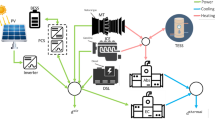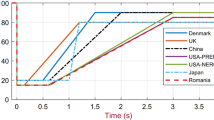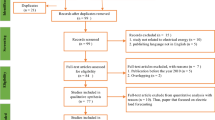Abstract
Electric power industry deregulation has brought about the unbundling of generation, transmission and distribution services and as such, new techniques for reliability assessment are being developed to account for the consequent structural changes in the restructured environment. The transition towards deregulation imposes several unique challenges for establishing reliability modeling paradigms. Addressing these concerns requires a comprehensive knowledge of the technical and economic issues involved and the identification of relevant research gaps. This paper presents a broader framework for the research perspectives to holistically address the significant issues that can profoundly impact the reliability studies in the liberalized environment. Starting from the improvisations in the reliability network equivalent techniques in vogue, this paper advocates the use of power flow tracing as a potential tool for reliability and well-being studies of power systems, and expands upon their practical implications.
Similar content being viewed by others
References
Verma AK, Vijay Venu V (2008) Adequacy-based power system reliability studies in the deregulated environment. Intl J Reliab Qual Safety Eng 15(2): 129–141
Khan ME, Billinton R (1992) A hybrid model for quantifying different operating states of composite power systems. IEEE Trans Power Syst 7(1):87–193
Billinton R, Lian G (1994) Composite power system health analysis using a security constrained adequacy evaluation procedure. IEEE Trans Power Syst 9(2):936–941
Billinton R, Fotuhi-Firuzabad M (1994) A basic framework for generating system operating health analysis. IEEE Trans Power Syst 9(3):1610–1617
Billinton R, Aboreshaid S, Fotuhi-Firuzabad M (1996) Conceptual framework for composite power system health analysis. Proc Canadian Conf on Electrical and Computer Engg Calgary 1:396–399
Goel L, Feng C (1999) Well-being framework for composite generation and transmission system reliability evaluation. IEE Proc — Gener Transm Distrib 146(5):528–534
Leite da Silva AM, Chaves de Resende L, Antonio da Fonseca Manso L, Billinton R (2004) Well being analysis for composite generation and transmission systems. IEEE Trans. Power Syst 19(4):1763–1770
Wangdee W, Billinton R (2006) Bulk electric system wellbeing analysis using sequential monte carlo simulation. IEEE Trans Power Syst 21(1):188–193
Fotuhi-Firuzabad M, Billinton R, Aboreshaid S (1996) Spinning reserve allocation using response health analysis. IEE Proc — Gener Transm Distrib 143(4):337–343
Billinton R, Fotuhi-Firuzabad M, Aboreshaid S (1997) Unit commitment health analysis for interconnected systems. IEEE Trans Power Syst 12(3):1194–1201
Billinton R, Karki R (1999) Capacity reserve assessment using system well-being analysis. IEEE Trans Power Syst 14(2):433–438
Fotuhi-Firuzabad M, Billinton R (1999) Unit commitment health analysis in composite generation and transmission systems considering stand-by units. IEE Proc — Gener Transm Distrib 146(2):164–168
Billinton R, Fotuhi-Firuzabad M (2000) A reliability framework for generating unit commitment. Elect Power Syst Res 56(1):81–88
Fotuhi-Firuzabad M, Billinton R (2002) A mathematical framework for unit commitment and operating reserve assessment in electric power systems. Proc. 14th Power Syst Computation Conference Seville, 24–28
Abiri-Jahromi A, Fotuhi-Firuzabad M, Abbasi E (2007) Optimal scheduling of spinning reserve based on well-being model. IEEE Trans Power Syst 22(4):2048–2057
Goel L, Song Z, Wang P (2004) Well-being analysis of spinning reserve in a bilateral power market. Electric Power Syst Res 69(1):37–42
Wang P, Billinton R (2001) Implementation of nonuniform reliability in a deregulated power market. Proc Canadian Conf Electrical and Computer Engineering 2: 857–861
Wang P, Billinton R, Goel L (2002) Unreliability cost assessment of an electric power system using a reliability network equivalent technique. IEEE Trans Power Syst 13(3): 549–556
Wang P, Billinton R (2003) Reliability assessment of a restructured power system using reliability network equivalent techniques. IEE Proc — Gener Transm Distrib 150(5): 555–560
Wang P, Goel L (2003) Reliability-based reserve management in a bilateral power market. Elect Power Syst Res 67(3):185–189
Wang P, Billinton R (2004) Reliability assessment of a restructured power system considering the reserve agreements. IEEE Trans Power Syst 19(2):972–978
Goel L, Viswanath PA, Wang P (2004) Montecarlo simulation-based reliability evaluation in a multi-bilateral contracts market. IEE Proc — Gener Transm Distrib 151(6): 728–734
Ding Y, Wang P, Goel L, Billinton R, Karki R (2007) Reliability assessment of restructured power systems using reliability network equivalent and pseudo-sequential simulation techniques. Elect Power Sys Res 77(12): 1654–1664
Verma AK and Vijay Venu V (2008) A tracing-based realistic state space selection method for composite power system reliability assessment in the restructured Scenario. Proc. IEEE Power and Energy Society General Meeting, Pittsburgh, pp. 1–6
Verma AK, Vijay Venu V (2009) A modeling paradigm for extending well-being analysis to a composite bilateral contracts market. Proc. IEEE PES Power Systems Conference and Exposition, Seattle, USA
Wu FF, Ni Y, Wei P (2000) Power transfer allocation for open access using graph theory-fundamentals and applications in systems without loopflow. IEEE Trans Power Syst 15(3):923–929
Billinton R, Allan RN (1984) Reliability Evaluation of Power Systems, New York: Plenum
Billinton R, Khan ME, Agarwal SK (1989) Contingency cut-off criteria in transmission system adequacy assessment. IEE Proc 136(4):215–221
Stambaugh F (1996) Risk and Value at Risk. European Manage J 14:612–621
Dahlgren R, Liu CC, Lawarree J (2003) Risk assessment in energy trading. IEEE Trans Power Syst 18(3):503–511
Zhong J, Wu FF (2006) Operating reserve value at risk. Proc. IEEE PES General Meeting, Montreal, Canada Int J Syst Assur Eng Manag (2010) 1:32–35
Author information
Authors and Affiliations
Corresponding author
Rights and permissions
About this article
Cite this article
Vijay Venu, V., Verma, A.K. Reliability of electric power systems: challenges in the deregulated environment — a research perspective. Int J Syst Assur Eng Manag 1, 24–31 (2010). https://doi.org/10.1007/s13198-010-0013-x
Published:
Issue Date:
DOI: https://doi.org/10.1007/s13198-010-0013-x




